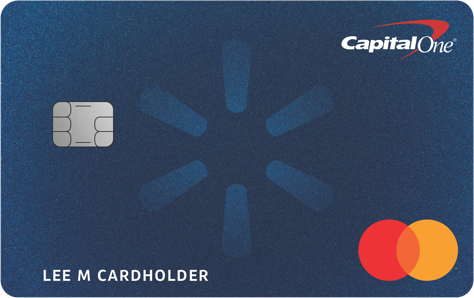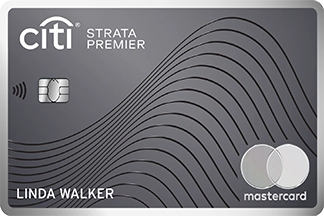- myFICO® Forums
- FICO Scoring and Other Credit Topics
- General Credit Topics
- Re: AZEO Best Practices?
- Subscribe to RSS Feed
- Mark Topic as New
- Mark Topic as Read
- Float this Topic for Current User
- Bookmark
- Subscribe
- Mute
- Printer Friendly Page
AZEO Best Practices?
Is your credit card giving you the perks you want?
Browse credit cards from a variety of issuers to see if there's a better card for you.
- « Previous
-
- 1
- 2
- Next »
- Mark as New
- Bookmark
- Subscribe
- Mute
- Subscribe to RSS Feed
- Permalink
- Report Inappropriate Content
Re: AZEO Best Practices?
You can also make a payment GREATER than your current balance to cover a pending transaction that may post. I do that all the time. Does anyone know how a credit balance would affect AZEO? That is the only danger I see to paying a pending transaction before it posts.



Current Scores

















Garden Goal is All Reports Clean – Achieved 11/26/20

- Mark as New
- Bookmark
- Subscribe
- Mute
- Subscribe to RSS Feed
- Permalink
- Report Inappropriate Content
Re: AZEO Best Practices?
Some cards won't allow one to pay an amount greater than one's current balance. Barclays is one of them. Others have restrictions, e.g. Capital One allows payments of up to 10% over the current balance.
Negative (credit) balances report as zero.
- Mark as New
- Bookmark
- Subscribe
- Mute
- Subscribe to RSS Feed
- Permalink
- Report Inappropriate Content
Re: AZEO Best Practices?
- Mark as New
- Bookmark
- Subscribe
- Mute
- Subscribe to RSS Feed
- Permalink
- Report Inappropriate Content
Re: AZEO Best Practices?
@HeavenOhio wrote:Some cards won't allow one to pay an amount greater than one's current balance. Barclays is one of them. Others have restrictions, e.g. Capital One allows payments of up to 10% over the current balance.
Negative (credit) balances report as zero.
Discover is the same way. Can't pay more than the current balance.
- Mark as New
- Bookmark
- Subscribe
- Mute
- Subscribe to RSS Feed
- Permalink
- Report Inappropriate Content
Re: AZEO Best Practices?
@Anonymous wrote:I have scoured the forums for the difference between due date and Statement date and the best way to optimize the AZEO strategy. After reading 100+ posts I am still confused. So I ask does any1 have a bare bones, talk to me like I'm a 5th grader primer?
Specifically I am going to pay my Cap1 card today, I want to get it down to the 9% threshold. Does that mean I shouldn't use it again until the 20th? Or have I already missed my window and $350 is going to hit my CR?
- Due Date: 2/16
- Cycle Close: 2/19
- Amount Due: 0.00
- Current Balance: $350
1. For scoring purposes, yes you shouldn't use the card again until the 20th, and the balance from the January 19th statement is the one that will be reported. However since you've waited so long to make your payment it may or may not be reflected in the statement balance.
2. For financial purposes, you should have paid it before the due date, and could possibly have forfeited your grace period.
Next time don't cut it so close.































Total revolving limits 568220 (504020 reporting) FICO 8: EQ 689 TU 691 EX 682
- Mark as New
- Bookmark
- Subscribe
- Mute
- Subscribe to RSS Feed
- Permalink
- Report Inappropriate Content
Re: AZEO Best Practices?
@Anonymous wrote:
Thanks for the fast reply. I have a better understanding now. As long as the balance is paid b4 the statement cut date I will be AZEO compliant?
No because there's no guarantee that a payment so close to the statement date will be reflected in the statement balance.































Total revolving limits 568220 (504020 reporting) FICO 8: EQ 689 TU 691 EX 682
- Mark as New
- Bookmark
- Subscribe
- Mute
- Subscribe to RSS Feed
- Permalink
- Report Inappropriate Content
Re: AZEO Best Practices?
@MakingProgress wrote:You can also make a payment GREATER than your current balance to cover a pending transaction that may post. I do that all the time. Does anyone know how a credit balance would affect AZEO? That is the only danger I see to paying a pending transaction before it posts.
I do that frequently. A credit balance is reported as a zero balance.































Total revolving limits 568220 (504020 reporting) FICO 8: EQ 689 TU 691 EX 682
- Mark as New
- Bookmark
- Subscribe
- Mute
- Subscribe to RSS Feed
- Permalink
- Report Inappropriate Content
Re: AZEO Best Practices?
@HeavenOhio wrote:Some cards won't allow one to pay an amount greater than one's current balance. Barclays is one of them. Others have restrictions, e.g. Capital One allows payments of up to 10% over the current balance.
Negative (credit) balances report as zero.
Most of them won't allow you to pull a payment greater than the balance, but they can't stop you from pushing the payment to them.































Total revolving limits 568220 (504020 reporting) FICO 8: EQ 689 TU 691 EX 682
- Mark as New
- Bookmark
- Subscribe
- Mute
- Subscribe to RSS Feed
- Permalink
- Report Inappropriate Content
Re: AZEO Best Practices?
@Anonymous wrote:
Last question, should the balance be 8.9% of that card or of my total available credit across cards? My total available credit is $4650 so that would be > $413 to achieve 8.9% but I am using a card with a $3700 CL so should I make my total reported > $329?
It's best to have overall utilization at 8.9% or less.
It's important to have individual utilization at 28% or less, but better to have it even lower.































Total revolving limits 568220 (504020 reporting) FICO 8: EQ 689 TU 691 EX 682
- Mark as New
- Bookmark
- Subscribe
- Mute
- Subscribe to RSS Feed
- Permalink
- Report Inappropriate Content
Re: AZEO Best Practices?
@SouthJamaica wrote:
@Anonymous wrote:
Last question, should the balance be 8.9% of that card or of my total available credit across cards? My total available credit is $4650 so that would be > $413 to achieve 8.9% but I am using a card with a $3700 CL so should I make my total reported > $329?It's best to have overall utilization at 8.9% or less.
It's important to have individual utilization at 28% or less, but better to have it even lower.
I hope you are taking note of SouthJ's last post (above). It sounds like you were mistakenly thinking you need AT LEAST 8.99%. The opposite is true. You want to have LESS than 8.99%
Furthermore, a tiny balance (like $8 on a credit limit of $10,000) will be rounded up to 1% by FICO. So you are free to have ultralow utilization and it will still be considered in the 1-8% range. Really tiny balances (like 88 cents) are often reported as $0, so the general wisdom here is to make a card's balance $5 or more if you want it reporting a positive balance. (And remember all you need is one card with a positive balance.)